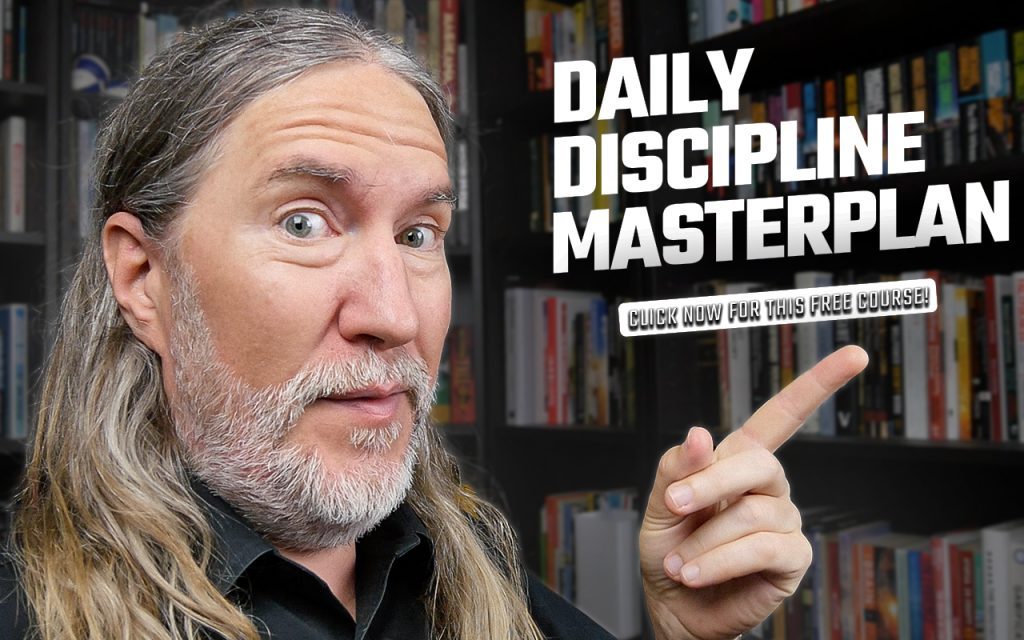Long lists of personal development questions not only take forever to read.
They often skip the most important reason why you want to grow as a person in the first place.
Now, I don’t know what that reason is, and chances are you don’t know either.
Which can be a massive source of frustration.
I know that when I get lost, not having the best possible questions only makes things worse.
That’s why I crafted a list of the most impactful questions I could find.
They’ve helped me just be okay so many times I can’t even begin to count them.
Even better:
The questions you’re about to discover have helped me build multiple business, write over a dozen bestselling books and have a ton of fun taking risks on incredibly fun experiments. There are so many things I never would have tried if I hadn’t discovered these questions.
So if you’re ready, let’s dive into the topic a bit deeper and set the stage for your success as you start answering these incredible questions.
What Makes Personal Development Questions Good?
There’s a weird book called The Do-It-Yourself Lobotomy.
In it, Tom Monahan argues that people simply fail to ask great questions.
They don’t push hard enough, and that means they can’t push far enough.
He thinks that one reason people fail to ask great personal development questions is that they simply don’t play enough.
To illustrate the point, he tells a story that goes something like this:
A professor walks into a room filled with graduate students.
He says:
“Be a tiger.”
The grad students look at each other, clueless.
“When’s the assignment due?”
“How many pages?”
“Do I need to include primary research?”
“Never mind,” the professor says, “this assignment is clearly too hard for you.”
The same professor went to a birthday party for his kid later that day.
He says to the seven year olds:
“Be a tiger.”
Instantly, they form their fingers into claws.
They raise their lips.
They bar their teeth.
Collectively and with joy they shout, “Roooooooaaaaaaaaarrrrr!”
Now, I share this story because it is the key to asking effective questions that get results.
Don’t overthink the answers.
Play with the questions and allow even the silliest answers emerge without judgment or guilt.
And if you find yourself feeling foolish, or you start dwelling on the past, that’s okay too. Just note what’s going on and then return to answering the questions.
One last thing:
For best results, use a journal to write out your answers. That way, you can view them objectively and return to them later if you wish.
6 Personal Development Questions That Create Rapid Results
As you read through this list and answer the questions in your journal, please understand that there’s no particular order of importance here.
What matters is that you go through them all and reflect on the answers.
I’m confident you’ll love the results after you’re done.
And I hope you’ll benefit from the stories and resources I’ll share throughout.
One: If You Were The CEO Of Your Life, What Results Would You Demand?
Serious stuff, isn’t it?
Unlike other lists, this one means business.
And I’m starting it with it because this question saved my life.
When I was struggling to start my first online business, I was unfocused and disconnected. All day, every day I ran from task to task with no structure or particular outcome in mind. I just wanted “success.”
Although the “Start with Why” logic makes a lot of sense, I think most people know exactly why they’re doing things. They just might not want to admit.
You’re doing things because reality forces you to eat. You need a place to sleep. And you want to enjoy maximum comfort.
Sure, you might have a driving need to help others, and that’s great.
But let’s call a spade a spade. We’re all trying to maximize pleasure and minimize pain, including the discomfort of boredom.
Write Your Inner CEO
When I realized I was constantly ambling around and getting nowhere, I started writing memos to my Inner CEO.
I realize this self development activity sounds utterly ridiculous. But I was desperate and the activity actually worked.
I wrote down the results that I wanted and told my Inner CEO what things needed to take place in order for those results to arise.
No “law of attraction.” No “manifestation.” No B.S.
Just a simple mental image of myself as the boss of my life and a series of memos describing what needed to be done.
I still write these “Inner CEO” letters to myself and suggest you do the same. They’re powerful.
Two: Is This Limiting Or Expansive?
We often choose to work on things for the wrong reasons.
It’s often out of scarcity or feelings of lack.
Or, we’re just engaged in busy work in order to avoid taking care of the things we know need doing. We literally pause to pick up pennies instead of dollars in order to avoid going after our real dreams.
In The Wise Advocate, three experts with leadership expertise, psychiatric research credentials and substantial coaching experienced shared some amazing findings from neuroscience.
One of the exercises in the book helps you tap into the “wise advocate,” which is a bit different than “trusting your gut,” which Chip and Dan Heath demonstrate is not a great idea in their book Decisive.
No, instead of going for your gut instinct, this exercise seeks to access your inner wisdom and your true desires.
And it’s very simple.
When you’re making a decision, you simply ask yourself, does this goal make me feel expansive or limited?
Then you note how you feel, ideally journaling about your response.
My Strangely Fulfilling Fiction Project
I run a big blog about memory called Magnetic Memory Method.
One day I got a crazy idea for a novel about a detective who struggles with PTSD and early cognitive decline. His mentor, a blind memory champion, teaches him how to use memory techniques.

To make things even more complicated, I also got the idea for a memory improvement game.
Instantly, all my alarm bells went off and an inner voice told me it would be too much work.
It turned out that launching the project was a lot of work.
But each and every step, I completed the wise advocate exercise. I openly admitted that the project could be a huge failure, but simply asked, “Does it make me feel expansive or limited?”
Each and every time, this simple personal development question came back with the same answer. I knew that even if the project were to fail, simply working on it made me feel fulfilled.
In fact, the idea of not working on it made me feel so limited I started having dark thoughts about following the path I’d already been pursuing for a decade.
So the next time you’re at a crossroads, give this simple question a try.
Three: How Do My Thoughts Behave?
This is kind of hard for me to believe, but at the time of writing, my TEDx Talk has nearly three million views:
In it, I shared a simple question that has helped my personal development so much:
How do my thoughts behave?
The question seems to have confused a lot of people, but basically, you’re just trying to come up with a label that helps you neutralize unhelpful mental content.
For example, you might find that a thought is:
- Childish
- Rooted in scarcity
- Selfish
- Coming from exhaustion
- … etc.
I learned this question from Gary Weber who wrote Happiness Beyond Thought. His follow-up book, Evolving Beyond Thought has many other powerful questions.
In some sense, this question deepens the nature of the previous question related to whether things make you feel limited or expansive. The more you practice it, the more nuances you’re likely to discover.
Four: What Can I Change Or Experiment With For Free?
A lot of people think they need to extend tons of monetary resources into life improvement.
Frankly, I disagree.
There are many things you can change without money. Here’s a whole tutorial on the topic.
In it, I shared how I started my first business literally without spending a dime. It was months before I finally hired someone to correct a typo on my first book, and it was an Amazon bestseller even with the mistake.
Of course, those were in the early days of the so-called Kindle gold rush, but to this day, I still make my own graphics most of the time.
Sure, I could be a “better” entrepreneur and hire people. And sometimes I do. But I also love to learn and I wanted to become more visual as part of my experiments with resolving aphantasia.
So far so good!
Five: If This Is True, What Changes?
Listen, I talk a lot about being against woo-woo. I’m literally allergic to pseudoscience. At least, most of the time.
Whenever I’m flirting with some crazy new idea I’ve come across on the Internet or some dusty old book, I ask this incredibly simple question:
If this is true, what changes?
In your own self development journey, you can ask it whenever you’re struggling with big questions, especially around things like god and the nature of the universe.
All kinds of people have unqualified opinions and it can be easy to let them distract you.
But you can stop the disturbance in its tracks by asking this simple question.
Usually the answer is that nothing changes. God exists? Great, what changes? God doesn’t exist? Great, what changes?
In both cases, no one wins because accepting that the answer is possibly correct changes nothing.
This simple answer then frees you to focus on other aspects of self betterment and self knowledge more deserving of your time.
Six: How Many People Are You Trying To Be?
Jon Morrow mentored me for a few years.
He once said that I always seemed like I was trying to be two people at the same time.
I didn’t see that as a problem then, and I don’t see it as a problem now, even though it certainly can be problematic if I try to achieve goals I’m only chasing after out of scarcity or lack.
The reality is that I’m more than two people. And I imagine you are too.
It really helps your progress with these personal development questions if you take some time to create a list.
Michael Gerber has a version of this exercise in The E-Myth Revisited where you describe all the hats your wear in your business.
But I suggest you go deeper and think about all the different kinds of people you are in your life at large.
The Internal Family Systems approach has helped many people in this regard. It can sound like some kind of multiple personality scheme, but it really isn’t. It’s more about giving metaphors to the different roles you play in life, something that everyone from Nietzsche to the Ancient Greeks have suggested in terms of using personas as a self improvement strategy.
As Elijah Milgram suggests in Why Didn’t Nietzsche Get His Act Together?, the philosopher switched personas often to make a variety of points.
But arguably, we do this all the time. As Nir Eyal argues in Indistractable, we can choose personas intentionally in order to get better results in life.
The trick is to have a variety to choose from in the first place. And this simple question will help you generate your first set of choices.
Asking Personal Development Questions As A Matter Of Habit
Now that you have a bunch of unique and powerful questions you won’t find anywhere else, it’s time to turn asking them into a habit.
I mean, it would be great if you could just go through exercises like this and be done with them.
But because the body regenerates its cells and new experiences change us, we’ve got to keep going through the questioning process to keep ourselves sharp.
Keeping a journal is one big step. But scheduling regular time to revisit questions like these is a must.
And you can train your mind to create an automatic process around asking questions like these.
I share more about how to set up such systems in my Daily Discipline Masterplan.
If you enjoyed answering these questions, please feel free to grab it now:
So what do you say?
Are you ready to ask some powerful questions and start getting immediate results?
Make it happen. You deserve to be your highest possible self!


